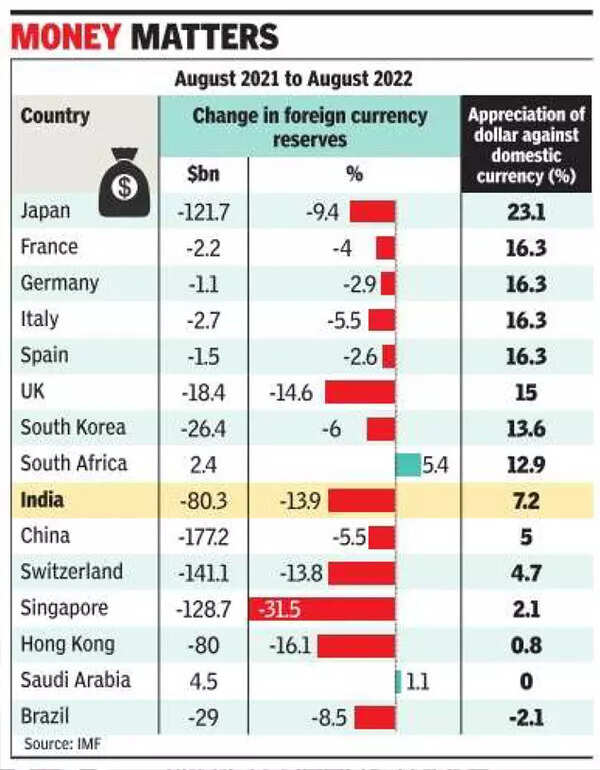In the ever-evolving global economy, nations rely heavily on foreign exchange reserves to weather financial storms and facilitate international trade. These reserves, measured in U.S. dollars, represent the store of financial assets held by central banks and other monetary authorities. Like a financial cushion, they provide a buffer against external shocks, stabilize exchange rates, and support economic growth.

Image: www.youtube.com
Forex reserves have been a key macroeconomic indicator for decades, reflecting a country’s economic strength and resilience. The size and composition of these reserves can impact everything from investor confidence to sovereign credit ratings.
Diversification and Liquidity
Forex reserves play a crucial role in diversifying national assets. By holding a range of currencies, including the U.S. dollar, the euro, and the Japanese yen, countries can mitigate the risks associated with fluctuations in any single currency. Diversification also enhances the liquidity of reserves, allowing central banks to access funds quickly in case of an emergency.
The liquidity of forex reserves is vital during times of financial stress. If a country faces a sudden outflow of capital, its central bank can tap into its reserves to meet foreign currency obligations, stabilize the exchange rate, and prevent a currency crisis.
Stabilizing Exchange Rates
Foreign exchange reserves act as a buffer against external shocks, helping to stabilize exchange rates. Central banks intervene in the foreign exchange market by buying or selling foreign currencies to influence the value of their own currency. By carefully managing reserves, they can prevent wild swings in exchange rates, which can disrupt贸易, investment, and economic growth.
When the value of a currency falls sharply, central banks may sell foreign currencies from their reserves to buy their own currency, reducing its supply in the market and increasing its value. Conversely, when the currency is appreciating rapidly, they may buy foreign currencies to increase the supply of their own currency and curb its rise.
Supporting Economic Growth
Adequate forex reserves can support economic growth by fostering international trade and investment. They provide confidence to foreign investors and businesses, who are more likely to trade with countries that have strong reserves. This increased foreign exchange earnings can lead to job creation, economic growth, and improved living standards.
Reserves also allow a country to import essential goods and services, even during times of currency volatility or economic downturn. By ensuring access to foreign exchange, they help maintain a stable supply of raw materials, energy, and other imports, thereby supporting economic stability and growth.

Image: timesofindia.indiatimes.com
Trends and Developments
The management of forex reserves has evolved over time. In recent years, there has been a shift towards greater diversification, with central banks holding a wider range of currencies and assets. This diversification aims to reduce risks and increase the flexibility of reserves.
Technological advancements have also impacted the management of forex reserves. Central banks are increasingly using sophisticated data analysis and risk management tools to monitor and forecast currency movements. This allows them to make more informed decisions and respond more effectively to changing market conditions.
Tips and Expert Advice
For countries looking to strengthen their forex reserves, experts recommend:
- Maintain adequate reserves: Reserves should be sufficient to cover a country’s foreign currency obligations for at least three months.
- Diversify holdings: Hold a range of currencies and assets to reduce risks and enhance liquidity.
- Monitor market conditions: Track currency movements and economic indicators to forecast potential risks and adjust reserve management strategies.
FAQs on Forex Reserves
Q: What are forex reserves?
A: Foreign exchange reserves are financial assets held by a country’s central bank to meet external financial obligations, stabilize the exchange rate, and support economic growth.
Q: Why are forex reserves important?
A: Forex reserves provide a financial cushion against external shocks, stabilize exchange rates, support international trade and investment, and contribute to economic growth.
Q: How are forex reserves managed?
A: Forex reserves are managed by central banks, which intervene in the foreign exchange market to influence the value of their own currency and manage risks.
Forex Reserves Of Different Countries
Conclusion
Forex reserves are a vital tool for nations striving for economic stability and growth. By holding adequate, diversified, and well-managed reserves, countries can protect themselves against financial risks, stabilize exchange rates, and foster international trade. As the global economy continues to evolve, forex reserves will remain a critical component of macroeconomic policy and a key indicator of national economic strength and resilience.
Do you have any questions or thoughts about forex reserves? Share your perspective in the comments below!






